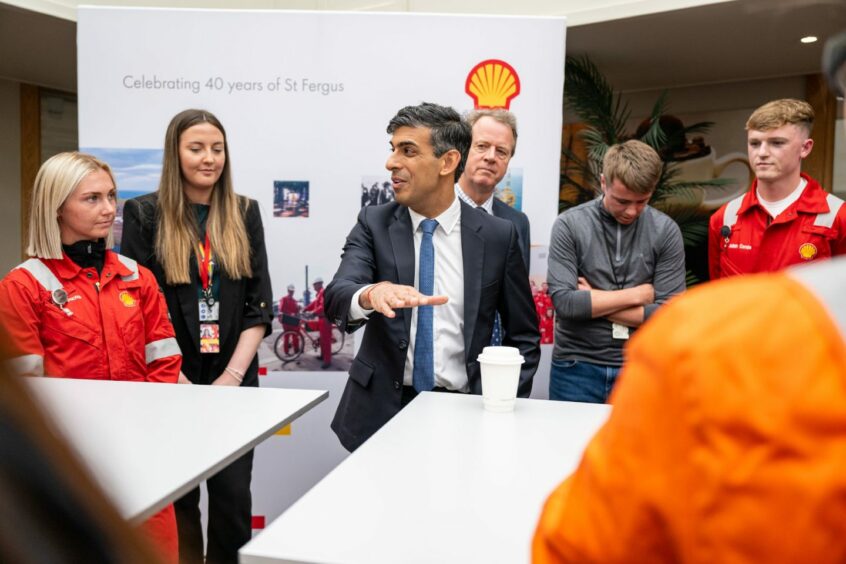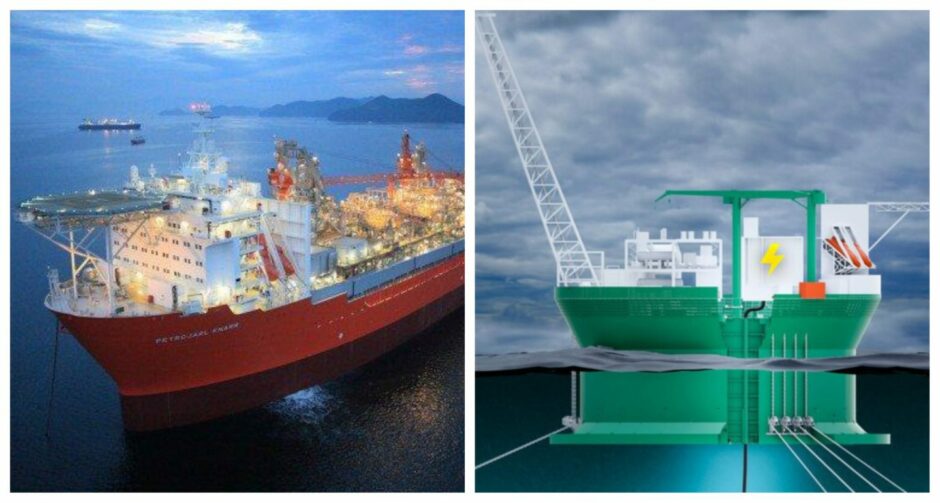
A senior Scottish Government figure has challenged the UK Government to show that more North Sea licences won’t threaten net zero goals.
Scotland’s minister for small business, trade and innovation, Richard Lochhead emphasised the need for a “very rigorous compatibility test” for future oil and gas permits.
His comments, made during a visit to Hydrasun in Aberdeen on Monday, came just hours after Rishi Sunak confirmed support for ongoing exploration.
The Prime Minister later said he wanted to “max out developments” in the North Sea, with more than 100 new licences due to be issued shortly.
Regulator the NSTA is currently assessing 115 bids from the 33rd offshore round, which opened in January.
Sunak’s support for future oil and gas production has drawn harsh criticism from activist groups, who believe the policy to be at odds with the UK’s climate obligations.
Net zero commitments in place
Westminster has a legally binding commitment to zero out emissions entirely by 2050.
In Scotland that target is 2045, and earlier this year – weeks before Nicola Sturgeon resigned as First Minister – Holyrood declared its “presumption against” new exploration as part of its draft energy strategy.
Mr Lochhead said: “Oil and gas licensing is reserved to the UK Government, and our position all along has been that they should only be giving the go ahead after a very rigorous compatibility test, to show that our net zero targets are not going to be jeopardised by ongoing oil and gas production and extraction. That remains our position.
“The onus is on the UK Government to show the people of Scotland – and indeed the world at a time when it is burning – that issuing those licenses won’t endanger our net zero targets and saving the planet.”
A climate compatibility checkpoint that new oil and gas projects have to clear to progress is in place, but critics believe it is too lenient.
New licensing is just the tip of the iceberg though, and numerous other battles are raging over whether existing North Sea projects should be allowed to progress.
Industry has repeatedly made the case that while there is still demand for oil and gas in the UK, it makes sense to produce it domestically.
On top of the economic benefits, senior figures have highlighted the fact that North Sea because have a lower carbon footprint than imports.
Climate activists meanwhile are calling for a rapid move away from hydrocarbons while ensuring that workers are able to move into new industries.
Rosebank and Cambo in the same basket
A key point of contention is over new oilfields, where much of the production would be sent overseas due to lack of domestic refining capacity in the UK.
Two projects in particular – Rosebank and Cambo, both of which are located West of Shetland – have become key arenas in the debate.
On whether those undeveloped fields should be allowed to progress, Mr Lochhead said: “Again, Rosebank and Cambo will fall into that same category; only where the UK Government is able to give evidence to the public that the go ahead of any new fields, whether they’ve already been licenced or not, will not jeopardise our net zero targets.”
Recommended for you


 © Supplied by Kath Flannery/DC Tho
© Supplied by Kath Flannery/DC Tho © PA
© PA © Supplied by Teekay/Sevan SSP
© Supplied by Teekay/Sevan SSP